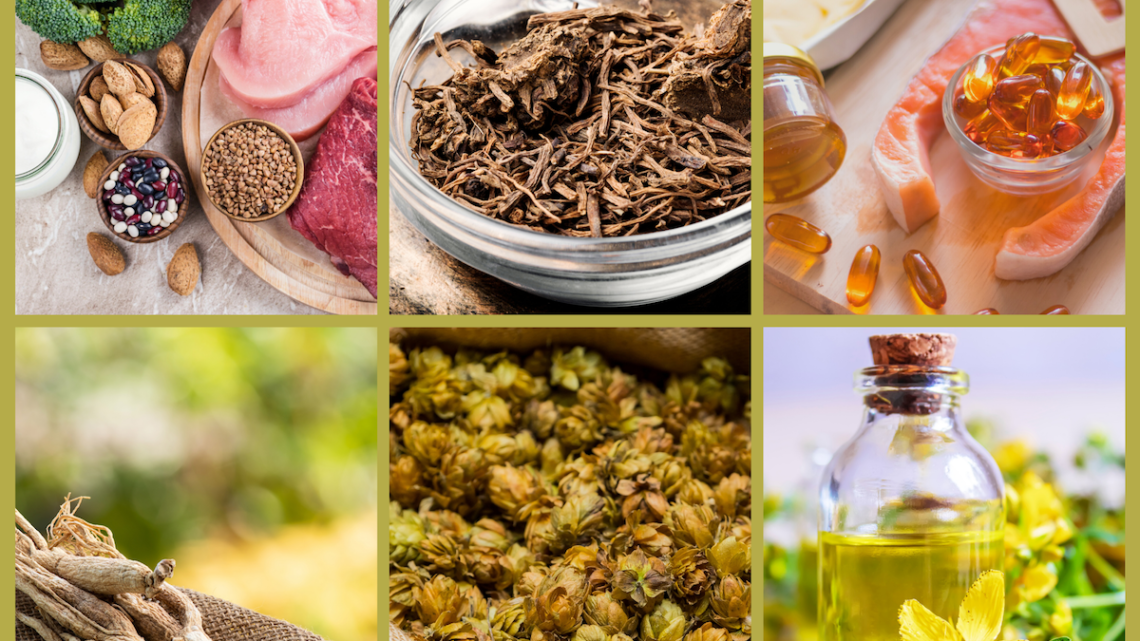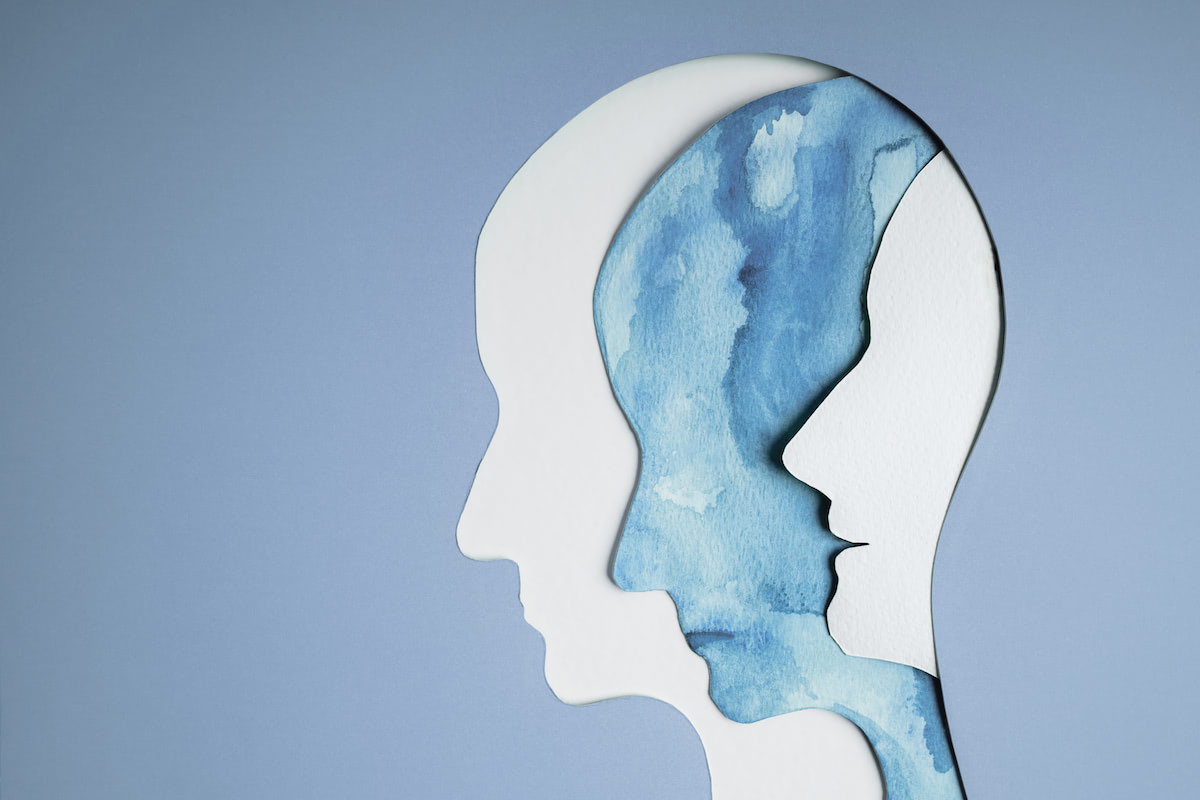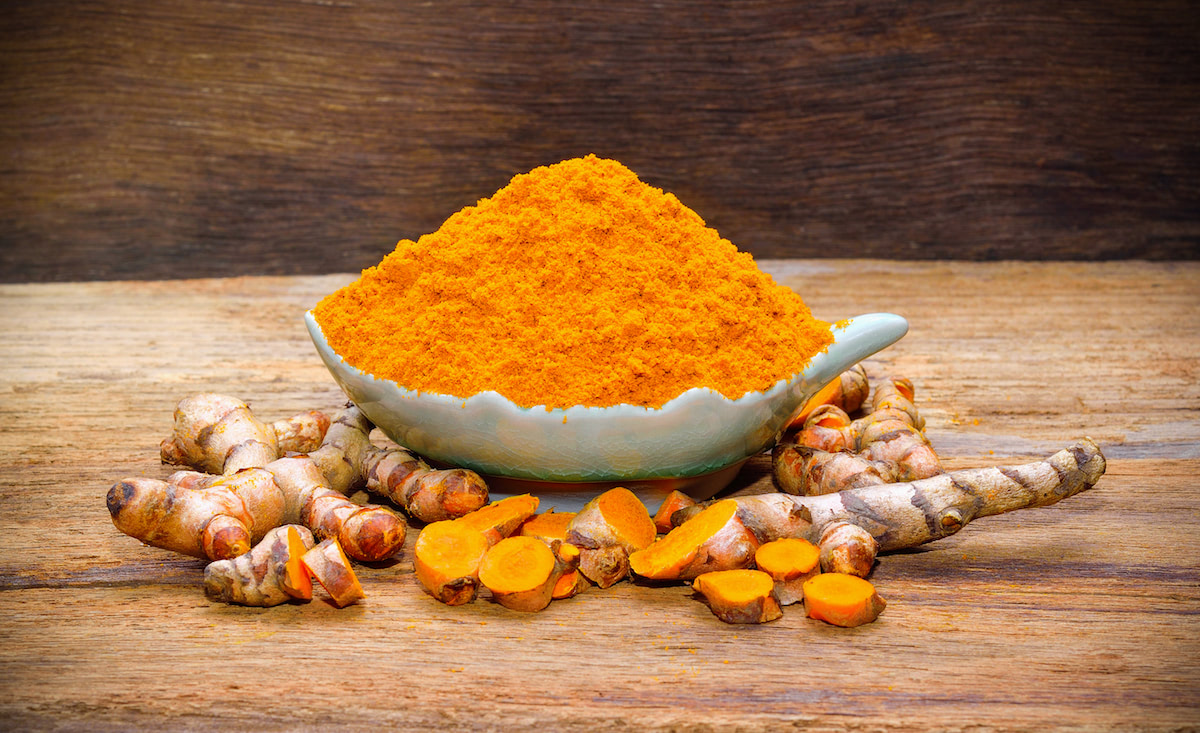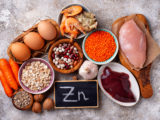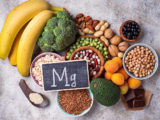Updated on 23. June 2022 from Carolin Jäger
Reading time: approx. 6 minutes
Effective support from nature
Depressed patients very often suffer from a lack of active nutrients for the brain. These include vitamins B12, B6, folic acid, magnesium, vitamin D and omega-3 fatty acids. However, there are many other nutrients and phytopharmaceuticals that have a supporting effect.
Vitamins for depression
B-complex vitamins
Due to permanent stress situations, changes in the hormone and immune status of those affected can be measured. There is a pronounced serotonin deficiency in the brain. Serotonin is an important transfer substance that has a variety of functions in our body. The largest reservoir is in the mucous membrane of the gastrointestinal tract. As the “happiness hormone”, it has an antidepressant effect and regulates blood pressure, gastrointestinal activity, sleep-wake rhythm, hunger pangs and body temperature. Antidepressants aim to increase the amount of serotonin in the brain. However, since the formation of serotonin depends on the presence of B vitamins such as B12, B6 and folic acid, serotonin can no longer be produced in the case of vitamin B deficiency, which also explains the limited effect of the drugs. However, if the drugs are combined in sufficiently high concentrations with the necessary nutrients, the patient responds more quickly and the quality of life improves.
Foods with a high content of B-complex vitamins:
- Lean meat
- Eggs
- Poultry
- Fish
- Milk
This means that people who eat a vegetarian or vegan diet are deficient in this vitamin, but this can be compensated for by supplementation from outside.
Folic acid
Depression may be partly due to a deficiency or poor utilisation of folic acid. Norwegian scientists found proof of this when they determined the blood concentration of the amino acid homocysteine in almost 6,000 people. Its degradation is promoted by folic acid, so a high homocysteine level in the blood indicates a deficiency of folic acid.[1]
In fact, subjects with high levels of homocysteine in their blood were twice as likely to be depressed as those with the lowest homocysteine levels. Another indication of the connection between folic acid, a member of the B vitamin family, and depression came from a DNA analysis led by researchers led by Ingvar Bjelland of the University of Bergen: In people who showed a high susceptibility to depression, a certain gene was modified that usually plays an important role in folic acid metabolism.
The new findings are supported by earlier experiments, according to which folic acid can significantly increase the effect of antidepressants. However, it is not yet clear to the scientists how vitamin B could prevent the development of depression. However, they suspect that folic acid could be involved in the formation of certain substances in the brain. If these are missing, depression and other mental disorders develop. For Bjelland, this confirms that vitamins are not only essential for physical health, but also for mental health.
Vitamin D
In addition to taking oral supplements, exposure to sunlight is also important as it contributes to the production of vitamin D. When there is less sunshine, as in autumn or winter, more cases of seasonal depression are reported. There is a proven link between the development of depressive symptoms and vitamin D deficiency.
In recent years, many scientific studies have shown that in order to avoid various health risks, values of at least 30 ng/ml must be reached; some even set the lower limit of an optimal intake at 40 ng/ml. According to the most frequently represented experts, values in the range between 40 and 80 ng/ml can recently be described as optimal.
Minerals for depression
Magnesium
Although the connection between magnesium intake and depression is scientifically well documented, the underlying mechanism remains unclear. After all, magnesium is known to play a key role in the regulation of mood-affecting neurotransmitters.
However, the mineral is not only important for muscle function, it also influences the heart rate and bone structure and plays a central role in inflammatory processes in the body. These in turn can also have a negative effect on mental health and promote depression.
A study by the University of Vermont[2] investigated whether magnesium can alleviate pre-existing depression. To do this, they recruited 126 patients with an average age of 52 who suffered from mild to moderate depression.
Half of them were given 2 8 milligrams of magnesium per day over a period of six weeks. The second group initially received no treatment. Then they received magnesium for six weeks, while the first stopped their treatment. With a weekly questionnaire, the researchers checked how the participants’ depressive symptoms developed.
In 112 participants, magnesium administration developed a positive effect on symptoms of depression and anxiety. The effect was even similar to that of selective serotonin reuptake inhibitors (SSRIs), the newer and most commonly prescribed antidepressants. All participants tolerated the supplements well.
The effect was particularly rapid. The symptoms improved significantly after only two weeks; this often takes longer with antidepressants.
Zinc
Zinc appears to influence brain metabolism in several ways. It influences the transmission of neurotransmitters in the synapse and acts as a modulator of important neurotransmitter receptors. Therefore, a deficiency of zinc or an alteration of the zinc metabolism in these biochemical forms can lead to the nervous system not being able to adapt equally well to changes in the environment or to new experiences, which in the long run can lead to the development of mental illnesses .
It is also involved in the regulation of the expression of the BDNF protein (Brainder-derived neurotrophic factor). BDNF plays an important role in memory, neuroplasticity and contributes to the regulation of processes such as learning, experience or memory. Decreased BDNF levels correlate with neuronal atrophy and depressive disorders.
A new meta-analysis[3] from 2021 included a total of 6 randomised, placebo-controlled studies, of which only studies with patients with major depressive episodes (major depression) were conducted. Only these were also considered for the sensitivity analysis. The doses of zinc used in the trials ranged from 7 to 25 mg of zinc per day over an intervention period of 2 to 6 months. The result of the meta-analysis shows that zinc supplementation accompanying antidepressant therapy led to further symptom reduction in patients with major depression.
This is especially true for patients over 40 years of age. The effect of zinc on depression in children and adolescents has not been proven.
Natural remedies for depression
Herbal remedies have several advantages over synthetic medicines in mental and neurovegetative disorders: they are well tolerated, do not cause physical or psychological dependence, do not cause a “hangover” and generally do not interact with other medicines. This is particularly important with regard to the use in multimorbid (multiple illness) and polymedicated (parallel use of more than 3 medicines) elderly people.
Besides general measures, phytopharmaceuticals are the first-choice remedy for the indications given, if there is no disorder with acute need for intervention. Herbal sedatives such as valerian, hops, lavender, lemon balm and passion flower can be used for naturopathic treatments. As herbal antidepressants, especially St. John’s wort and, with restrictions, caffeine-containing plants such as guarana, cola and mate. In addition, ginseng and taiga roots.[4]
The five most important medicinal plants and their possible applications are listed below:
- Valerian is technically called Valerianae radix. It has a calming, sleep-promoting and balancing effect. It is used, among other things, for nervous sleep disorders and restlessness.
- St. John’s wort or hyperici herba is a herbal medicinal product with a mild stabilising and mood-lifting effect. Its effectiveness has now been proven in numerous scientific studies.
- Indications: mild depression, psychovegetative disorders, inner restlessness and anxiety.
- Statements that St. John’s wort is ineffective are based on an American study whose results were published in 2001. Here, only the effectiveness in severe depression was investigated. Whereas the effectiveness in mild and moderate depression is proven by many placebo-controlled studies. The mood-lifting effect sets in after one to two weeks, sometimes after three weeks. Since the dosage of the preparations available on the market varies greatly, you should discuss taking them with your doctor.
- Lupuli strobulus or hops cones have a calming and sleep-inducing effect. Hop cones are used for sleep disorders, anxiety and restlessness.
- Melissa (Melissae folium) has a relaxing effect. It has a calming effect and is used, among other things, for difficulties falling asleep due to nervous states of mind.
- Passion flower or Passiflorae herba also has a calming effect. It is used against restlessness and inner agitation. It is also used as a complementary therapy for hyperthyroidism. However, it should always be used under medical advice.
(Note: As an Amazon affiliate, we earn on qualifying sales)
Related articles: Depressed mood and depression
Sources:
[1] Fachzeitschrift Archives of General Psychiatry (Bd. 60, S. 618).
[2] Emily K. Tarleton et al.: Role of magnesium supplementation in the treatment of depression: A randomized clinical trial, PLOS one June 27, 2017, https://doi.org/10.1371/journal.pone.0180067
[3] Da Silva LEM et al. Zinc supplementation combined with antidepressant drugs for treatment of patients with depression: a systematic review and meta-analysis. Nutr Rev. 2021;79(1):1-12.
[4] Dr. Markus Wiesenauer – book “Phyto Praxis” (Springer-Verlag 5th edition 2013; ISBN: 978-3-642-32772-8 (print) 978-3-642-32773-5 (online).




